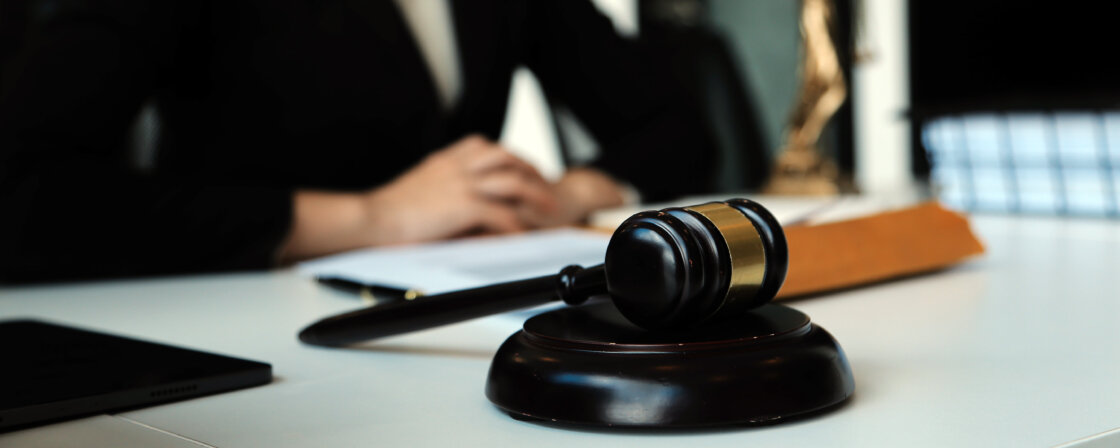What the Supreme Court does
In order to understand the work of the Supreme Court, sometimes called the nsoud, we must first take a brief look at the court system. It is an imaginary pyramid, the base of which is formed by the district and regional courts, which rule in the first instance. At the top of the pyramid are the supreme courts (or regional courts if the first instance decision was made by a district court), which decide on appeals against decisions of district and regional courts, and at the very top of the pyramid is the Supreme Court, which decides on extraordinary appeals, i.e. appeals and complaints for breach of the law.
An appeal is an extraordinary remedy available to challenge a final decision of the Court of Appeal. Only the Minister of Justice may lodge a complaint against a breach of the law if he suspects that a final decision of a court or prosecutor is unlawful.
You therefore appeal to the court if you have unsuccessfully appealed to the court of second instance, i.e. to the regional court if the district court ruled at first instance or to the high court if the regional court ruled at first instance.
Are you solving a similar problem?
Has the court ruled against you and do you want to fight it?
We will assess your chances of success and take care of the preparation of the appeal or appeal depending on the proceedings and the stage they are at.
I want to help
- When you order, you know what you will get and how much it will cost.
- We handle everything online or in person at one of our 6 offices.
- We handle 8 out of 10 requests within 2 working days.
- We have specialists for every field of law.
Another important function is to unify case law. It ensures that lower courts decide the same case in the same way. This process is important for achieving a uniform and consistent legal interpretation within the legal system. Another of its responsibilities is to collect and audit notifications of the activities, assets, income, gifts and liabilities of all judges in the Czech Republic.
The Supreme Court also decides on the determination of local jurisdiction in the judiciary, recognition of foreign judgments, authorization of the transit of a person on the basis of a European Arrest Warrant, review of interception orders, and in doubts about the exemption from the jurisdiction of law enforcement authorities.
Tip for article
Tip: We have discussed the system of courts in the Czech Republic in detail in another article.
Structure of the Supreme Court
The number of Supreme Court judges is around 70. The structure of the Supreme Court is made up of two colleges according to their area of activity: the Civil College and the Commercial and Criminal Colleges. Judgments are then made by the grand chambers of the colleges, the three-judge chambers and the collegium.
The Grand Chambers of the Colleges are composed of at least nine judges of the relevant College. They rule in situations where a panel of the Supreme Court reaches a legal opinion that differs from a legal opinion already expressed in a decision of the Supreme Court.
The three-member chambers are composed of the President of the Chamber and two judges. They decide mainly on appeals, complaints for breach of law, recognition and enforceability of decisions of foreign courts in the territory of the Czech Republic and in the field of criminal law.
The entire chambers are responsible for ensuring the legality and uniformity of court decisions. They observe and evaluate the decisions of the courts and forward the information found to the President of the Supreme Court for consideration. They also decide which court decisions will be included in the Collection of Court Decisions and Opinions.
The Supreme Court also meets as a full court. All the judges, the President and the Vice-President are present. The Plenary mainly discusses the Rules of Procedure of the Supreme Court.
The judges of the Supreme Court
The Supreme Court consists of the President of the Supreme Court, the Vice-Presidents of the Court, the Presidents of the Chambers and other judges. The Chief Justice and the Deputy Chief Justices are in charge of the administration of the Supreme Court, the Presidents of the Colleges direct the activities of the Colleges and the Presidents of the Senate direct the activities of the Senate.
A citizen of the Czech Republic who is of legal capacity and of good character and over 30 years of age may become a judge of the Supreme Court. He or she must have a master’s degree in law and have passed a professional judicial examination. They are appointed without limitation of time.
Each judge of the Supreme Court is given at least one assistant. This assistant shall be appointed by the President of the Supreme Court on the proposal of the judge requesting the assistant. The assistant may be a person of good character with a master’s degree in law.
The Judicial Council serves as an advisory body to the Supreme Court. It expresses its opinion, for example, on candidates for appointment to the office of President and may ask the President of the Supreme Court to convene the plenary session and propose an agenda for its meeting. Its members are elected by the assembly of all the judges of the Supreme Court for five-year terms and are headed by the President.
Tip for article
Tip: Are you going to sue? Find out how much you will pay in court fees.
Supreme Court decision
As outlined in Chapter 1, the Supreme Court decides mainly on complaints for breach of law and appeals. Let’s look at these in more detail:
Complaint for breach of law
Only the Minister of Justice can lodge a complaint for breach of law against a final decision of a court or prosecutor. If you would like to file it as an accused, then you must contact the Ministry of Justice and request that the Minister himself file the complaint. You can file a complaint at any time, as there is no time limit.
The purpose of the complaint is to correct legal defects or deficiencies in the findings of fact. It is intended to remedy defects that were already present at the time the decision was taken and are therefore usually directly apparent from the case file. The Supreme Court may either dismiss the complaint or rule that there has been an infringement of the law.
In the event of a breach of the law against the accused, it will remedy the situation by annulling the decision and subsequently, for example, deciding the case itself or ordering the case to be retried by the same court or prosecutor.
Appeal
An appeal may be filed by the Supreme State Prosecutor or by the accused through his/her counsel in the event that the court’s decision is incorrect. It may be lodged in the case of final decisions of the court at second instance, but only on the grounds laid down by law. It must be lodged within two months of the delivery of the court’s decision.
The Supreme Court may reject the appeal on formal grounds or dismiss it if it finds it to be without merit. Alternatively, it may find the appeal to be well-founded and annul the contested decision. It may then decide the case itself or order a new hearing and decision. In addition, it may itself add the missing operative part or order it to be completed without setting aside the contested decision.
Case law of the Supreme Court
As the Supreme Court makes decisions, case law emerges. A case law is a designation for a judicial decision and important case law is subsequently made into case law. Thus, case law is a collection of court decisions that interpret and apply legal norms to specific cases. These decisions shape the rules and principles that are applied to other court decisions. Case law is therefore an important source of law because it provides practical examples of how legal rules are applied in specific situations and how they can be interpreted.
The case law of the Supreme Court is particularly important because it is intended to ensure a uniform interpretation of the law. This means that Supreme Court decisions serve as an important source of interpretation of legal rules and principles to be applied by lower courts. It thus contributes to legal certainty and consistency in the legal environment.
Tip for article
Tip: All Supreme Court decisions can be found on the Supreme Court’s website nsoud.
Summary
The Supreme Court sits at the top of the judicial pyramid and decides on extraordinary appeals such as appeals and complaints for breach of the law. It also plays a key role in unifying case law, ensuring consistent legal interpretation across the lower courts. The structure of the court is divided into two chambers – the Civil and Commercial Chamber and the Criminal Chamber. The judges of the Supreme Court have high qualification requirements and their decisions shape the case law, which is a key source of law.
Frequently Asked Questions
What is the Supreme Court of the Czech Republic and what is its role in the judicial system?
The Supreme Court of the Czech Republic is the highest judicial authority for civil and criminal matters. It stands at the top of the judicial system and ensures that the courts in the Czech Republic rule uniformly. The Supreme Court’s decisions are of fundamental importance because they create the case law by which lower courts are governed. Its work is often referred to by the abbreviated term nsoud.
When can I appeal to the Supreme Court and how does the appeal process work?
The Supreme Court can be appealed to by way of an appeal, which is an extraordinary remedy against final decisions of the courts of appeal. However, an appeal must satisfy the statutory conditions and is directed in particular at the resolution of questions of law of fundamental importance. The Supreme Court then considers whether the lower court’s decision is correct or whether it should be annulled or reversed.
Where can I find Supreme Court decisions and rulings?
All Supreme Court decisions, including judgments and orders, are publicly available on the official website of the Supreme Court of the Czech Republic (nsoud.cz). Here you can search by case tag, date, keywords or type of proceedings. This database is the main source if you need to check the case law of the Supreme Court
What is the difference between the Supreme Court and the other highest courts in the country?
In the Czech Republic, there are two supreme courts – the Supreme Court and the Supreme Administrative Court.
-
The Supreme Court decides on civil and criminal cases.
-
The Supreme Administrative Court deals with administrative actions, election cases, disciplinary proceedings and other specialised matters.
Both are important, but their jurisdictions vary depending on the type of proceeding.
Why is Supreme Court case law important?
The Supreme Court’s case law unifies the interpretation of the law and ensures that courts decide similar cases similarly. As a result, litigants have greater legal certainty and predictability. Supreme Court judgments often influence the practice of attorneys, entrepreneurs and public authorities.




